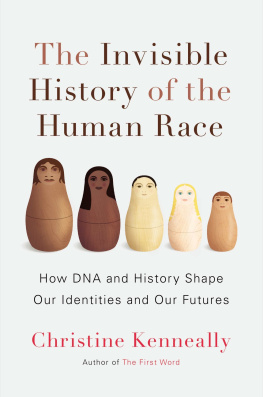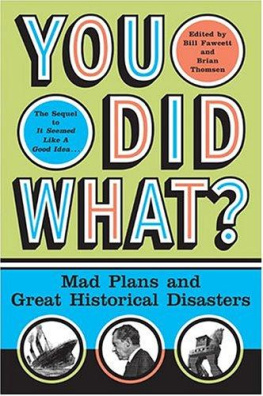To my editor, Will Hinton.
Your insights and suggestions made this so much better. Thank you.
Contents
Those who cannot remember the past are condemned to repeat it.
G EORGE S ANTAYANA (18631952),
T HE L IFE OF R EASON
T he march of history is less a steady stride than a series of stumbles and forward falls.
And the stumbles the United States, Europe, and the rest of the world are taking at the beginning of the twenty-first century are neither new nor unique.
Your great-great-great-grandparents and their leaders had to overcome their own versions of the same problems that you wake up worrying about. In many cases they found a way to fix, or at least survive, all those various woes. That is what this book is about.
Doomed to Repeat looks at many of the worst and most threatening problems society faces todayand that society faced throughout history. These pages are filled with lessons of the past.
Each topic in this survey is worthy of an entire library of books. In many cases there are shelves devoted to a topics problems and solutions. In fact, if you find a topic that is mentioned here to be of particular interest, go ahead and delve into more comprehensive works on it, or at least read further about it on the Internet.
Despite the title, this is not a book of doom and gloom. The title warns that we need to learn from the past to solve todays problems, not that they are impossible to overcome. For a tome about the worst disasters, collapses, and perplexing conundrums facing the world today, you might find it surprisingly upbeat. As the author, I make no excuse for the optimistic tone, since this is my own personal interpretation. I choose not only to see the glass as half full, but to have confidence that it can be filled to the rim. If nothing else, knowing that terrorism, depressions, speculation bubbles, arguments about official languages, and attempts to make a nation out of Afghanistan are not new should be reassuring. Our ancestors and forefathers not only survived almost identical challenges to the ones faced today, but many times they dealt with them successfully.
Doomed to Repeat might give you hope. It is a reminder that the current problems, which right now seem to threaten your entire well-being and prosperity, are not insoluble... if we can learn from history.
When two armies approach each other it makes all the difference in the world which one owns only the ground it stands on and which owns all the rest. We saw this in the South African conflict, where we owned nothing beyond the light of our campfires, whereas the Boers rode where they pleased all over the country.
W INSTON C HURCHILL (18741965),
T HE S ECOND W ORLD W AR
Often Invaded, Almost Never Conquered
Perhaps the most pressing foreign policy and military problem facing the United States and its NATO (North Atlantic Treaty Organization) allies in 2013 is dealing with the Taliban and the Islamic extremists in Afghanistan. More accurately, it is the attempt by the United States to create a situation in Afghanistan where that nation will not easily revert to being a breeding ground and refuge for fundamentalist Islamic terrorists. To permanently eliminate that threat, the United States and NATO are striving to assist Afghanistan in becoming a stable nation and, hopefully, a democracy. This is an exercise in what the U.S. State Department calls nation building.
The theory behind the policy of nation building suggests that a strong central government will be able to prevent or control the terrorists. A further concern the United States is grappling with is ensuring that, regardless of the ultimate outcome in Afghanistan, the Islamic fundamentalist movement, called the Taliban, is unable to return to power. The group actively hosted and supported the al-Qaeda network and other terrorist groups when it was in control of Afghanistan.
On the day this chapter was written, the BBC World News headline read Kabul Wakes Up to More Fighting. This headline could have been used hundreds of times during the last three millennia. There are many things about todays Afghanistan that make it one of the most difficult places in the world to turn into a unified and stable nation. Part of the problem is that the rural population is hard to reach. They are mostly illiterate (the literacy rate was 18.7 percent for males and 2.8 percent for females in 1978, and has improved only a little since) and often antagonistic, even to neighboring tribes. Another concern is the Afghan tribesmens history of fanatical resistance to any foreign presence in their valleys. This tradition goes back nearly three millennia. Even today, there are few cities and very little infrastructure, such as roads or electrical grids.
In the past thirty years, both of the worlds most powerful nations, the United States and Russia, have been deeply involved in that country. Both entered, at least partially, with the best of intentions. In the past two thousand years, a dozen nations have conquered Afghanistan only to find out that it was almost impossible to hold. The reason for this is the geography of the land, very little of which is flat. If you look at even a simple topographical map of Afghanistan, what you see is mountains and more mountains.
These mountains, and the valleys between them, both dominate and separate the region. This is reflected in the lives and allegiances of the people. There is not much national identity among the tribalized and locally loyal Afghan peoples. A look at the languages spoken inside Afghanistan shows half a dozen completely different tongues. Because of Afghanistans mountainous landscape, even a language that is spoken by hundreds of thousands is broken up, with pockets of one tongue isolated inside an area dominated by another.
These are not local accents or dialects, but completely separate languages. Like languages, loyalties are local, because until very recently the connections between the main groups were limited by language, culture, and the difficulties presented by the mountain barriers. In many parts of the world this division into separate groups is referred to as tribalism. Some of the Afghan tribes have millions of members, but many remain loyal to their own ethnic group rather than embracing any concept of a nation of Afghanistan. This lack of national identity leads to the real problem that faced first the USSR and now the United States. To turn Afghanistan into a democratic nation, it first has to become a nation. But both history and geography oppose this result.
There is one historical fact that has to be remembered as America attempts to build a lasting, democratic nation out of a land that holds half a dozen major, and numerous minor, ethnic groups that are geographically and culturally separate: that more complications occur because the wide range in views on Islam can divide those within a tribe. While most of the Taliban are Pashtun, only the more reactionary among that tribal group, a minority, support them. The government in Kabul, which the Taliban has sworn to destroy, is also heavily Pashtun. So Afghanistan is a nation whose boundaries were set not by tradition, not based on culture or trade, not even based upon history. The closest thing that there has been to an Afghan nation was the relatively short-lived Durrani Empire. It was much larger than the current country, and was itself dominated by only one of the ethnic groups. Afghanistan, as we know it on a modern map, was in no way based on an already existing country or even a shared culture or awareness. Britain decided and imposed where the borders would be to create what was considered Afghanistan. This was simply an imperial administrative region created with no regard for the languages, cultures, loyalties, or antagonisms of the natives who lived there. It was designed not for the people but to make life easier for European bureaucrats. To simplify the administration, the British lumped a number of very different cultural and tribal areas into one unrelated mass with nothing in common but being controlled by the same British governor.

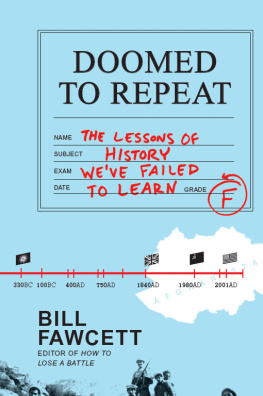
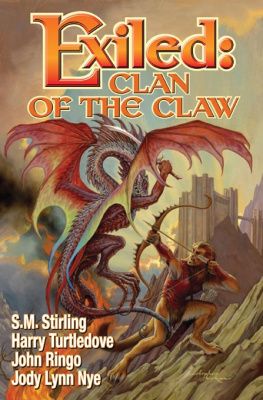
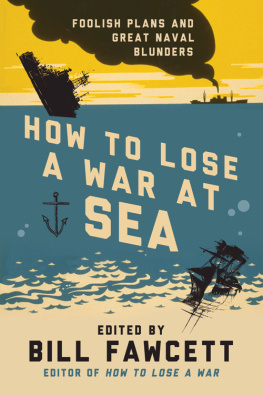
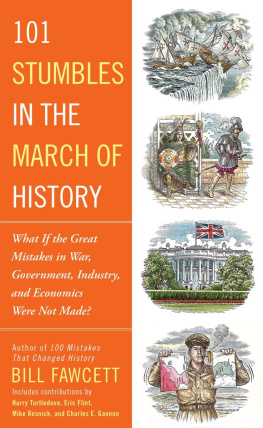
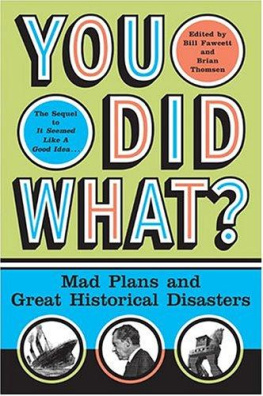





![Fawcett - How to lose the Civil War : [military mistakes of the War between the States]](/uploads/posts/book/92687/thumbs/fawcett-how-to-lose-the-civil-war-military.jpg)
